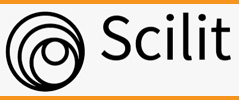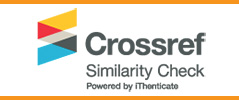BRATA PENYANGGRA RATU WAYAN DAN RATU KETUT DI DESA ADAT KEDISAN KECAMATAN KINTAMANI KABUPATEN BANGLI
Abstract
This study discusses one of the three Hindu religious frameworks, namely ethics in a tradition The religious tradition of society certainly has different characteristics according to the social conditions of the community. Likewise with the Hindu religious tradition, each region and social group must have its own way of carrying out its religious traditions. In Bali, differences in religious traditions that occur are often mentioned due to factors of differences in villages, kala, patra. Desa kala patra comes from three words, namely village means where we are, kala is the time when we are, and patra is the state or situation and condition in which we are. So the kala patra village can be interpreted as the flexibility of the community's interpretation of an area within a certain period of time adjusted to the situation / situation. The discussion was carried out in a descriptive qualitative manner by targeting the issue of how the process, ethical concepts and implications for the Kedisan village community in general. Among the various Hindu religious traditions that have developed in Bali, in general the Hindu religious tradition is based on three basic frameworks, namely tattwa, morals and events. Tatwa, namely philosophy, teachings, knowledge that comes from the Vedas (Sruti and Smerti). During its development, the teachings of Hinduism in Indonesia by the holy people / maharsi were compiled and adapted to the place where they developed the teachings in the form of a horizontal / lontar. One form of tattwa implementation is morally or ethically. This has become one of the centers of attention in this writing. The ethics that must be done in worshiping Ratu Wayan and Ratu Ketut must also be carried out by Jro Penyanggra Ratu Wayan and Ratu Ketut. In fact, especially for Penyanggra, who is called pengayah Ida Bhatara, they have to do several brata and special ways of worship while they are in the Nyanggra stage. Various brata or self-control and self-restraint carried out by the people of Ratu Wayan and Ratu Ketut include exercising control in speaking and behaving (in Hinduism this is called tri kaya parisudha), trying to withdraw from the social life of society (equal to braya). ), keep the way of dressing up to do some brata on certain foods. Even when worshiping Ratu Wayan and Ratu Ketut, a Penyanggra has its own ways which the local community says is pinging, even when doing one of the processions a Penyanggra is not allowed to speak at all.
References
Arikunto,Suharsimi. 1986. Presedur Penelitian Suatu Pendekatan Praktik. Jakarta: Rineka Cipta
Bagus, Lorens. 1996. Kamus Filsafat. Jakarta : Gramedia
Bentens, K. 1993.Etika. Jakarta : Gramedia Pustaka Utama
Burhan, Bungin. 2001. Metodelogi Penelitian Sosial. Surabaya : Erlangga
Franz Magnis – Suseno.2006.Etika Abad ke-20 (12 Teks Kunci). Yogyakarta: Kanisius
Gulo. 2004. Metodelogi Penelitian. Jakarta : Rineka Cipta
Iqbal, Hasan. 2002. Pokok – Pokok Materi Metodelogi Penelitian dan Aplikasinya. Jakarta: Ghalia Indonesia
Miguel Covarrubias. 2013. Pulau Bali : Temuan Yang Menakjubkan.Denpasar : Udayana Press.
Nada Atmaja, I Made,dkk. 2010.Etika Hindu.Surabaya : Paramita
Nazir,Moh. 1988. Metode Penelitian. Jakarta : Ghalia Indonesia
Sujarweni,P.Wiratna. 2014. Metodelogi Penelitian. Yogyakarta:Pustaka Baru Press
Subawa, I. M. P. (2020). Ajaran Tattwa dan Etika dalam Lontar Tutur Parakriya. Sphatika: Jurnal Teologi, 10(1), 26-36.
Surada, I Made. 2007. Kamus Sanskerta Indonesia. Denpasar : Widya Dharma.
Suweta, I. M. (2020). Etika Dalam Teks Lontar Kumara Tattwa. Maha Widya Duta, 3(2), 1-10.
Suweta, I. M. (2020). Lontar Tutur Kumara Tattwa (Kajian Singkat: Ajaran Hindu tentang Pengendalian Diri dalam Kehidupan). Widyacarya: Jurnal Pendidikan, Agama dan Budaya, 4(1), 1-10.
Tim Penyusun.2011.Ensiklopedi Hindu. Surabaya : Paramita.
Titib, I Made. 1996. Veda Sabda Suci Pedoman Praktis Kehidupan.Surabaya : Paramita.
Utama,IW Budi. 2013.Agama dan Praksis Budaya. Denpasar : Pascasarjana Universitas Hindu Indonesia
------------------.2015. Wajah Bali Tanpa Kasta : Pudarnya Identitas Baliaga. Denpasar : Pustaka Ekspresi.
Paramita, I Gusti Agung. 2020. Wajah Tuhan & Sifat Pemuja : Kumpulan Esai Agama dan Kebudayaan. Badung : Sarwa Tattwa Pustaka.
Peter Barry. 2010. Beginning Theory : Pengantar Komprehensif Teori Sastra dan Budaya. Yogyakarta : Jalasutra.
Yudha Triguna, Ida Bagus Gede.2011. Mengapa Bali Unik.Jakarta : Pustaka Jurnal Keluarga
Zoetmulder, PJ. 1994. Kamus Jawa Kuna Indonesia. Jakarta. PT Gramedia Pustaka Utama.












